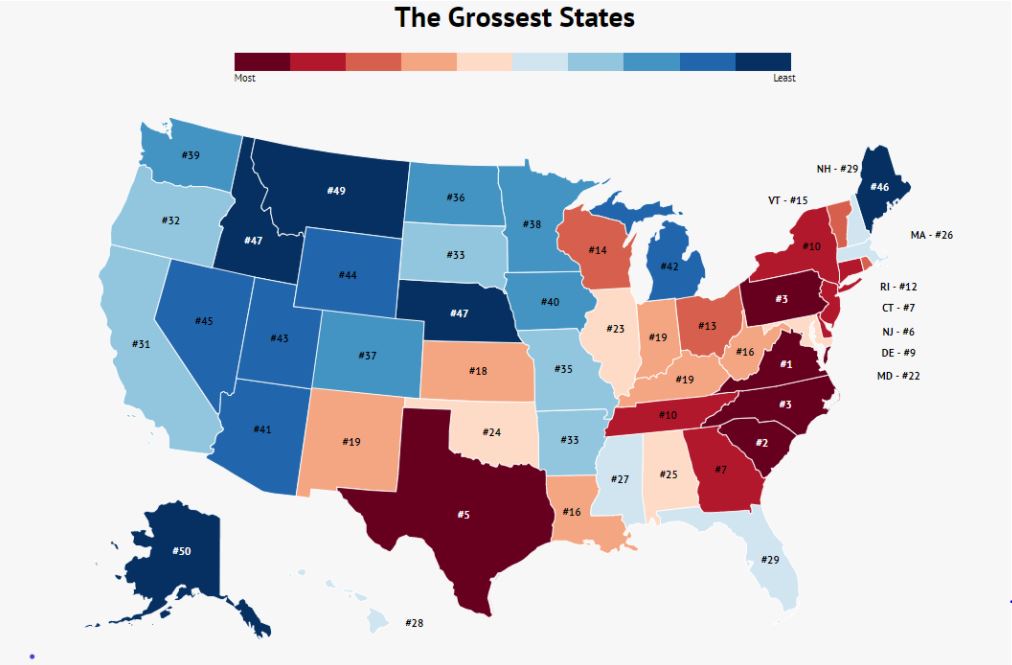Some outfit terming itself Zippia, the career expert, has published a ranking of the “grossest states” in America — and Virginia finds itself atop the list, followed by our neighbors to the south, North Carolina and South Carolina.
The methodology for this (hopefully) tongue-in-cheek exercise combined metrics for dirty air, trash, the spread of the flu, and the prevalence of Google searches for mayonnaise recipes and Crocs.
Zippia measured dirty air using a metric employed by AirFiltersDelivered. But that source ranks Virginia as having the 9th cleanest air in the country. Count me as amused but confused.
Trash was measured not by roadside litter by the percentage of each state’s land taken up by landfills. It is true that Virginia has a lot of landfills — in which, I hasten to add, the trash is BURIED — but Zippia’s link connects to an EPA page about greenhouse gases.
As for mayonnaise recipes and Crocs, well, maybe Zippia has a point.
So, I’m wondering… if Bacon’s Rebellion readers were compiling a list of grossest states, what metrics would they suggest?
— JAB


Leave a Reply
You must be logged in to post a comment.